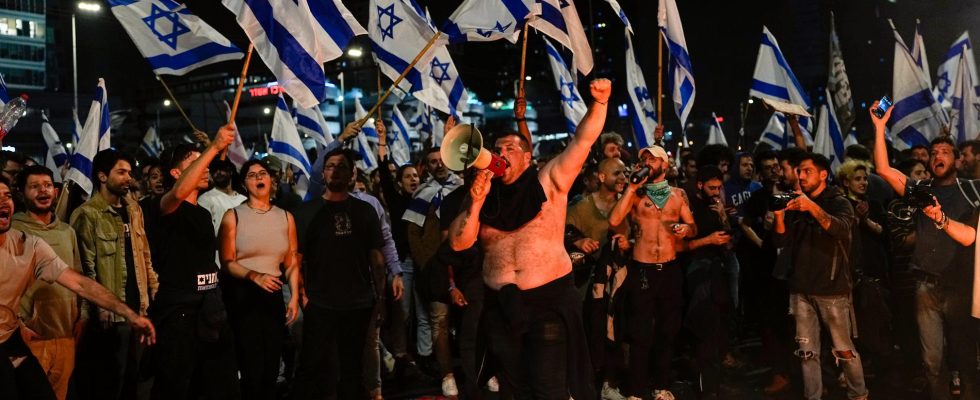Published: Just now
Hundreds of thousands of Israelis are protesting the government’s plan to overhaul the justice system.
In the past week, the protests have intensified, the defense minister has been fired and the president has demanded that the reform be stopped.
Here are five points you need to know about the situation in Israel.
Hundreds of thousands have protested since January
Massive protests have raged in Israel for the past year and soldiers have refused to fight. This is after the government presented its plan on January 4 to overhaul the legal system.
Soon, the law will be re-enacted, which means that the government will have total control over the appointment of judges.
But on Saturday, Israel’s Defense Minister Yoav Gallant came out and criticized the controversial legal reform. Prime Minister Benjamin Netanyahu announced on Sunday evening that Yoav Gallant was fired after his criticism.
The protests have since become increasingly intense – hundreds of thousands of Israelis took to the streets on Sunday evening. Demonstrators, among other things, forced the cordons at Netanyahu’s home in Jerusalem, reports say Haaretz.
What does the legal reform mean?
The legal reform has been described as a heavy blow to democracy in Israel. With such a change in the law, Parliament can take control over the appointment of judges. The Supreme Court’s influence is severely limited.
Parliament, the Knesset, thus gains greater powers and the incumbent government gains greater power. The law change would also protect Benjamin Netanyahu legally during the trial where he is suspected of corruption.
Naftali Bennett, former prime minister, believes that Israel is facing the biggest crisis since the Yom Kippur War in 1973.
“I call on the prime minister to withdraw Yoav Gallant’s dismissal, postpone the legal reform and continue negotiations after Independence Day,” he previously wrote in a statement, according to Haaretz.
What are the charges against Netanyahu?
Netanyahu is the longest-serving prime minister in Israel. He is also the first prime minister to be put on trial.
Since 2019, he has been charged with fraud, bribery and infidelity. The cases are called cases “1,000”, “2,000” and “4,000”, and form the basis of the prosecution. Netanyahu denies the allegations.
It will mean the end of his political career if he fails to appeal the sentence.
Case “4,000” is the most serious. It is about Netanyahu having negotiated more positive coverage on a news site in exchange for favors with Shaul Elovitch from the telecom giant Bezeq.
He and his wife Sara are also suspected of having received gifts worth two million kroner. Among other things, it is said to have involved cigars and jewelry from billionaire James Packer and Hollywood producer Arnon Milchan in exchange for political favors.
The president demands a stop
Internal criticism of Prime Minister Benjamin Netanyahu is growing in parallel with the mass protests.
President Isaac Herzog writes in a public statement that he demands an immediate stop to the legal reform on Monday morning, Haaretz newspaper reports.
“I appeal to the prime minister, the members of the government and the members of the coalition… For the unity of the people of Israel, because of the responsibility that we are obliged to take, I call on you to stop the legislative process immediately,” the president writes in the statement.
The reform is expected to be put on hold
The leaders of the governing parties are to meet and Netanyahu is expected to give a speech after the discussions on Monday morning, write Times of Israel.
They are said to have discussed the possibility of pausing the process during the night of Monday, sources within the Likud party told Haaretz. Netanyahu is expected to put judicial reform on hold.
Several ministers are said to have supported the decision for a break.
